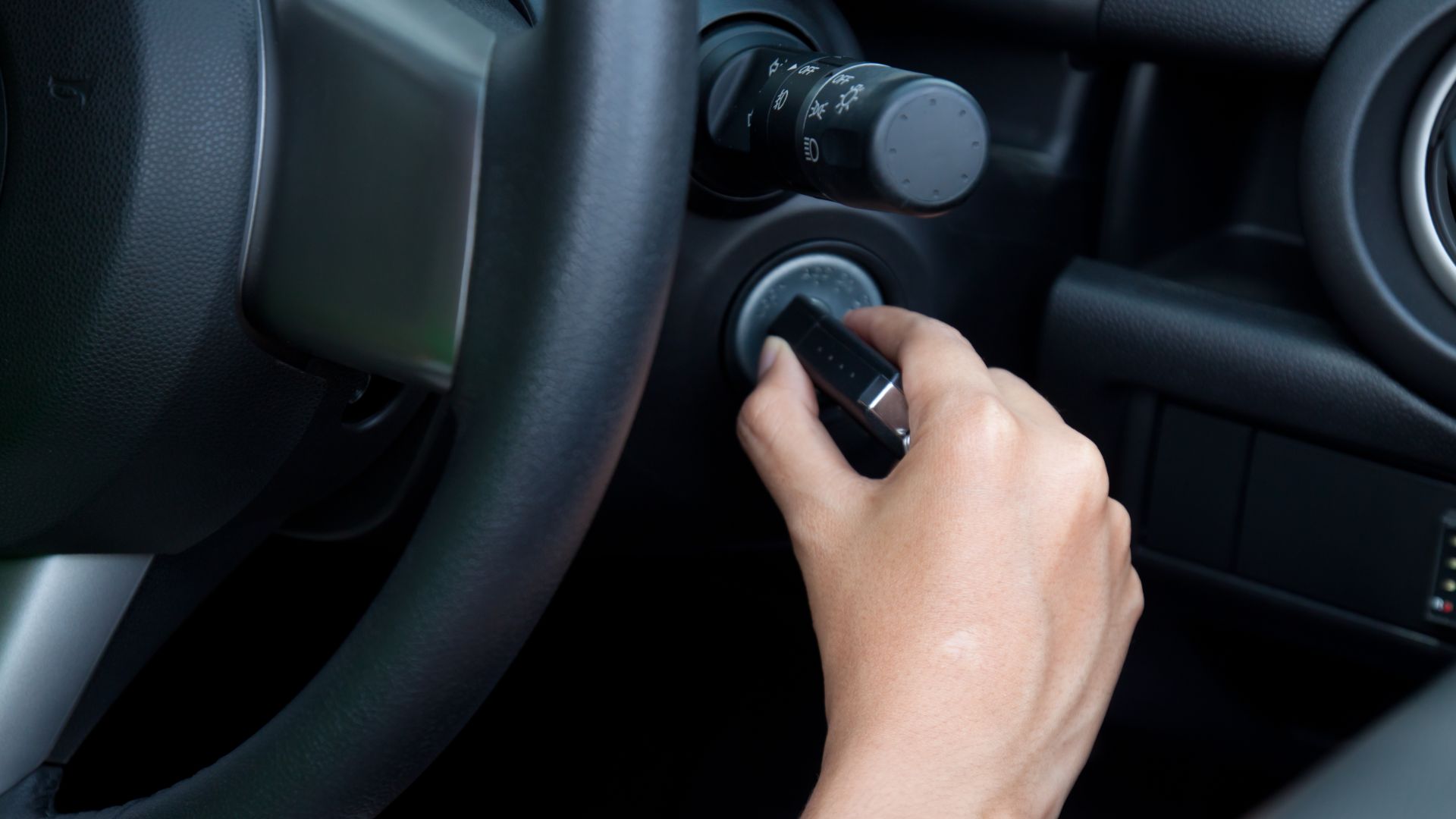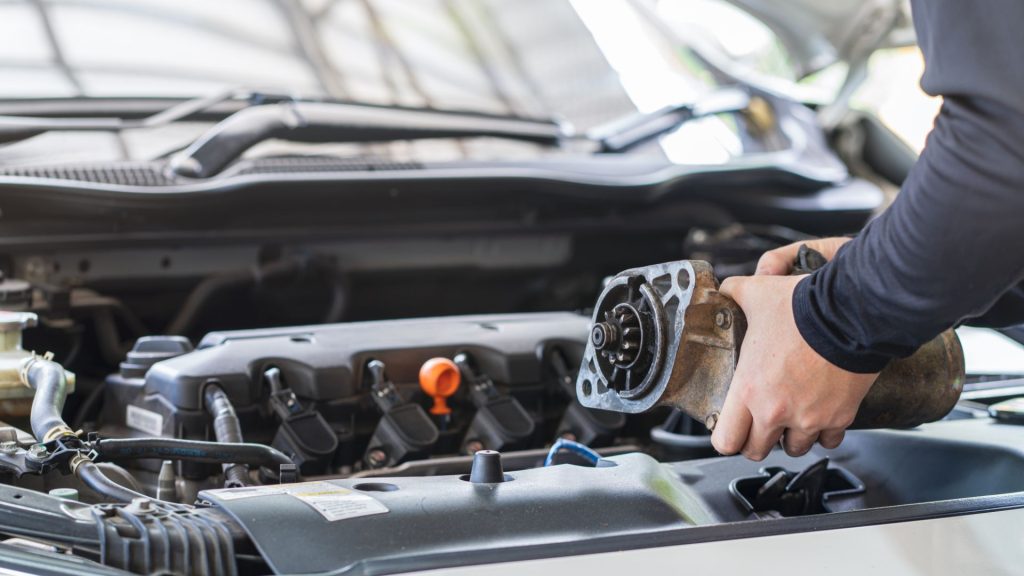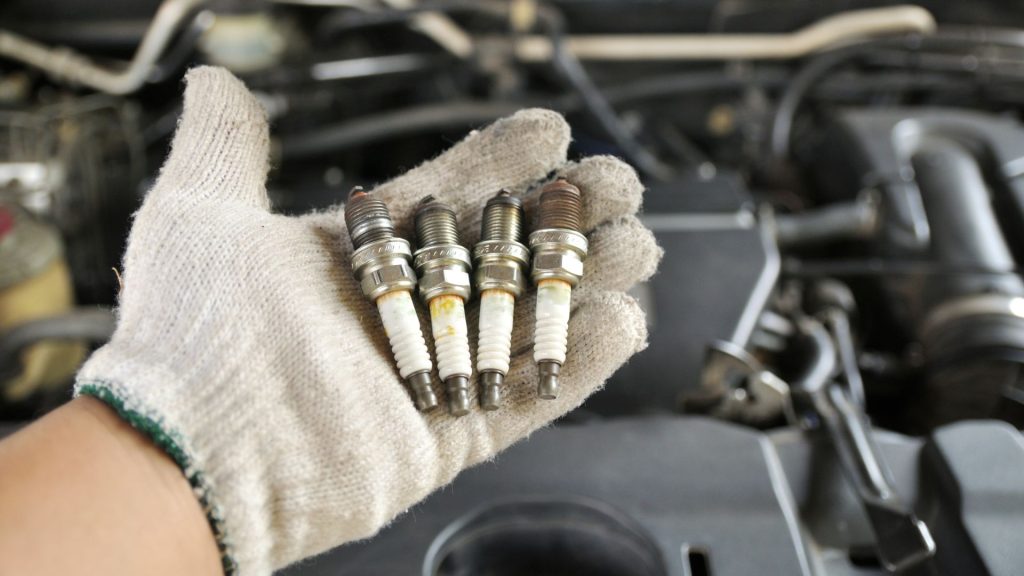Car hesitates to start — causes and fixes
Identify the common reasons for your car hesitating to start and how to resolve the issue.

Trying to start your car just to see that it struggles or even doesn’t start every time to put the key into the ignition can be extremely frustrating. There’s a wide range of different mechanical reasons behind the issue, so it might be tough to find the source of trouble.
If your car hesitates to start, you’ve come to the right place as our team will shed some light on possible reasons. We’ll also mention a few ways you can fix the issue and give you a heads-up on methods you can use to figure out the source without even going to a mechanic.
Main reasons why your car starts with hesitation
If your car hesitates to start, it’s a problem that you need to fix as soon as possible. You won’t be able to rely on the car starting properly whenever you need it to, so here’s a list of the most frequent causes:
- Bad starter motor
- Fuel pressure regulator
- Fuel delivery system problems
- Problems with spark plugs
- Clogged air filter
Regardless of the variety of reasons behind this problem, you might be able to diagnose it by observing the conditions when the engine hesitates to start. For instance, if your car won’t start after getting gas, it could be due to a stuck purge control valve or a clogged fuel filter.
You can also test the fuel pressure regulator yourself, as we’ll elaborate on in a bit. Some of the problems that you’ll need the help of a mechanic to diagnose include an exact source of the issue in fuel delivery or spark plugs.
Car hesitating to start due to a bad starter

If it’s the starter that’s making your engine hesitate to start, you can recognize it a bit before it dies. You’ll notice similar symptoms to having a draining battery since the electrical features and interior lights won’t be as bright as you are used to while you are starting the engine.
Your car will hesitate to start a few times before the starter dies. After it does, you’ll only hear a ticking noise as you try to crank the engine. However, it’s possible to start your car even after this point to reach a mechanic and replace the starter. You can just physically tap on the starter, and it should help start your engine properly again.
Checking the fuel pressure regulator
The fuel pressure regulator determines the amount of fuel sent to the fuel injectors by a pump, and its valve also lets fuel back in the tank. Once you put the key into ignition, the fuel pressure regulator delivers fuel from the gas tank into the injectors so you can start a car with direct injection.
However, if the fuel pressure regulator valve gets damaged or stuck, all the fuel remaining in the gas line will drain back to the tank. Because of that, there won’t be enough fuel pressure to start the engine without hesitation due to insufficient pressure buildup.
One way you can test this symptom yourself is to put the key into the ignition and switch it into the “On” position. You can wait a few moments and switch the key back into the “Off” position. By repeating the process three or four times, you’ll let the fuel pump build up fuel pressure in the line.
If your car starts without hesitation after doing this three or four times, you’ll know that the fuel pressure regulator has gone bad. Still, if the problem persists, it might be a damaged fuel pump or another scenario.
Other problems in the fuel delivery system
If the fuel delivery system doesn’t push enough fuel for the combustion to happen, your car will hesitate to start properly. It can be a matter of clogged fuel injectors, or damaged fuel pump, or a fuel filter. Your car’s fuel injectors spray fuel into the engine at a precise angle. If they get clogged, or their valves get stuck, the mixture of fuel and air won’t be sufficient for the spark plug to light up.
You can use a fuel injector cleaner to resolve this issue and get your injectors working properly again. On the other hand, we already discussed how a fuel pump sends gas into the fuel lines. Finally, changing the fuel filter on time also helps start your car properly.
If the fuel filter gets dirty and clogged, you might have a much longer starting time than usual.
Spark plugs stalling your engine

Some causes on this list draw other problems as well, and that’s the case with dirty spark plugs. If the fuel delivery system doesn’t inject the proper amount of fuel into the combustion chamber, it can result in dirty plugs. Moreover, spark plugs can also get corroded or covered in fuel and carbon, so they might not produce enough power to light up the mixture of air and fuel.
That’s why you could be sensing too long starting time when cranking your engine. Spark plugs can be either cleaned or replaced, and there’s one in every cylinder. So, if one or two stop working properly, you’ll have a hard time starting the car.
Dirty air filter
The air filter prevents any dust, dirt, and debris from entering your engine, and it’s a vital component for starting your car properly. However, the air filter needs to be changed regularly, or else it will get dirty, and it’s not even expensive to replace it.
Make sure to place a new one every 15,000 to 30,000 miles, to avoid it getting all black and dirty. You can check the air filter yourself without a mechanic’s help. Simply pop the air intake box open and check the filter. It won’t be as white as a new one, but if it’s dark gray or black it’s a sign that you’ll need to replace it.
A clogged air filter can prevent proper air delivery to the engine, so that might be a reason why it doesn’t start right away.
What does it mean when your car hesitates to start?
If your car hesitates to start, it means you have a bad fuel pressure regulator, a clog in the fuel delivery system, or dirty and corroded spark plugs. Getting your fuel delivery system components like fuel injectors, fuel pump, or a filter can help solve the issue.
On the other hand, if the spark plugs don’t light up the air and fuel mixture properly, you might need to clean or replace them.
Car hesitates to start when cold
If your car hesitates to start when it’s cold, it might be due to a weak battery. Your car needs a powerful charge at extremely cold temperatures, so if your battery isn’t fully charged it might not power other components enough.
Car hesitates to start when hot
Your car also might hesitate to start when it’s hot because of the bad crankshaft or camshaft position sensor. You can test it by running your car when you manage to start it, and taping the sensor physically while the engine is running.
If it misfires or shuts down, you have a faulty sensor and you can easily replace it yourself by getting a new one to solve the issue.
Our take
Ultimately, if your car hesitates to start, make sure to use this guide and the possible causes listed to find a solution. Sometimes it can be something as harmless as a bad sensor, while it could be a bit more expensive if you need to replace a fuel pump.
Either way, now you’ll have a clear picture of the possible triggers for the issue. Make sure to check for a bad fuel pressure regulator and dirty air filter yourself, since these can be easy to do on your own.